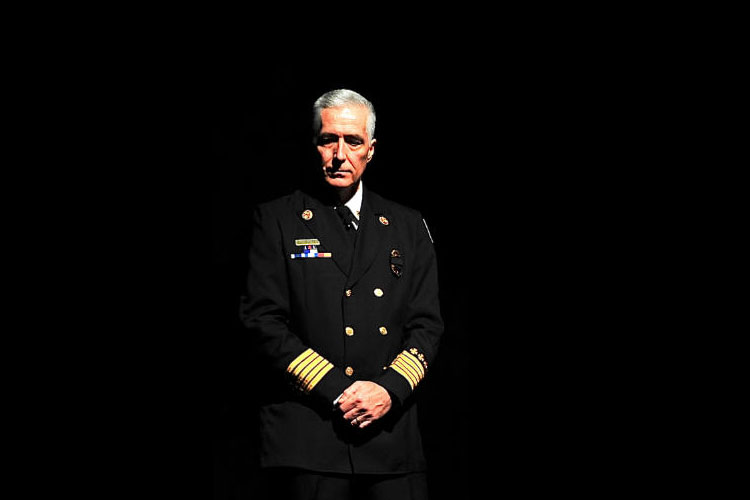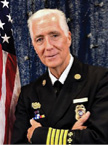

Life isn’t fair; that is a fact. We will all suffer. It is the human condition. Life starts with a cry, and for some that cry continues until the end. Firefighters get that. We see folks who, as we often say, were just in the wrong place at the wrong time. There is a story, completely unverified, of a man who was standing alongside a desolate stretch of highway in the desert a thousand miles from nowhere admiring the view when the tire of a passing semi came off and struck him dead. This may be total fiction, but the point is how random fate is and how quickly things can change.
When it comes to testing fate, firefighters are legendary. The very job is based on responding to the uncertain with an expressed desire to tame the situation back to normal by whatever means necessary. In the process, we will accept extreme risks to save lives or very controlled risks to protect endangered property. We do so with a great degree of confidence because we have heavily invested in our training, physical conditioning, and evaluated experience.
But even firefighters have limits. We can’t outperform Mother Nature; we are controlled by the same laws of physics as everyone else; and we would never needlessly, stupidly, or recklessly endanger ourselves or others. Of course, on Facebook this statement would be heresy. But firefighters are not stupid or arrogant; we exist to serve, and we serve with honor and dignity.
What happens to firefighters and other folks who routinely place themselves in high-risk/high-consequence situations physically and psychologically varies because of many factors. Trying to understand why someone’s body reacts to a substance or an environment and someone else’s doesn’t is extremely difficult. It is the same for our emotional, physical, and intellectual reactions: We all come hard wired and set up just a little differently from the factory in that regard, so despite the modern negative connotation, we kind of all are a little like snowflakes.
Most of us know of someone who has been stricken with lung cancer, and maybe they never smoked. We also all have heard of someone who smoked for 70 years and lived to age 90, only to fall down a flight of stairs. Life isn’t fair. The existence of a 90-year-old smoker, though, is rare—not quite a black swan, but close. We also all enjoy a hefty Santa Claus at Christmas, but no one—with the noted exception of Tim Allen—no one strives for that body type. As we look around, it is pretty clear that there are very few old fat guys.
We have all been exposed to scenes of carnage that we don’t share outside our own for obvious reasons. We are taught from day one that we will be expected to respond to and perform at scenes and incidents where horrible things have occurred and may still be occurring. It is not at all unusual for one or several of us to want to talk some of these calls out, get our heads wrapped around it a little tighter or looser. The calls that bother us vary as much as we vary but fairly consistently, when real malevolence is involved, it bothers most of us—sometimes not, but real evil is tough to ignore.
What happens as we live is interesting as far as threats are concerned. They change. We change. Our lives, our habits, and our normal behavior change to match our current understanding of threat. We generally focus on the most severe threats in our lives as they present themselves, and sometimes that makes us expose ourselves to another threat unknowingly or with less regard. The example of fighter pilots smoking to calm their nerves in World War II shows folks who engaged unknowingly in a potentially deadly behavior to help them deal with a more immediate threat to their lives.
Others, like astronauts, expose themselves to extreme dangers and potential physical harm because the rewards of space exploration are so great. But they also do all they can to ensure that the environment they work in and how much they expose themselves to are controlled as best they can. When it is prolonged weightlessness, they use resistance exercises. When there is the potential for burning alive, they rely on thermal shielding; as to radiation, they limit their time.
Like space travelers, our threats change, but our diligence and responses to them must remain focused. The threat of cancer from exposure to smoke and toxins is real. The ones who will get sick are unknown. We have records of multiple firefighters being exposed; some fell ill quickly, others slowly, some not at all. We recognize that some cancers are hereditary, and some cancers are acquired as the result of our exposures either absorbed or inhaled. Our focus during a firefight should be to exclude both exposure routes as best we can without ever lowering our guard or inhibiting our focus on the mission. Yeah, life isn’t fair, but we can improve our odds by being ready to protect ourselves as best we can given our current understanding and our accepted mission.
We can and should deploy gas monitoring equipment even when we think we are far enough or a safe distance away. We should wash everyone regardless of if we were knowingly contaminated. We should go on air where it is safe, not where it is “safe enough.” We should exercise, eat right, and take care of one another. We belong to a group fighter pilots and astronauts admire; we should keep that in mind. Most importantly, they do so because they understand threats and fate and admire those who do also yet, nonetheless, face them bravely and intelligently.

MORE BOBBY HALTON

